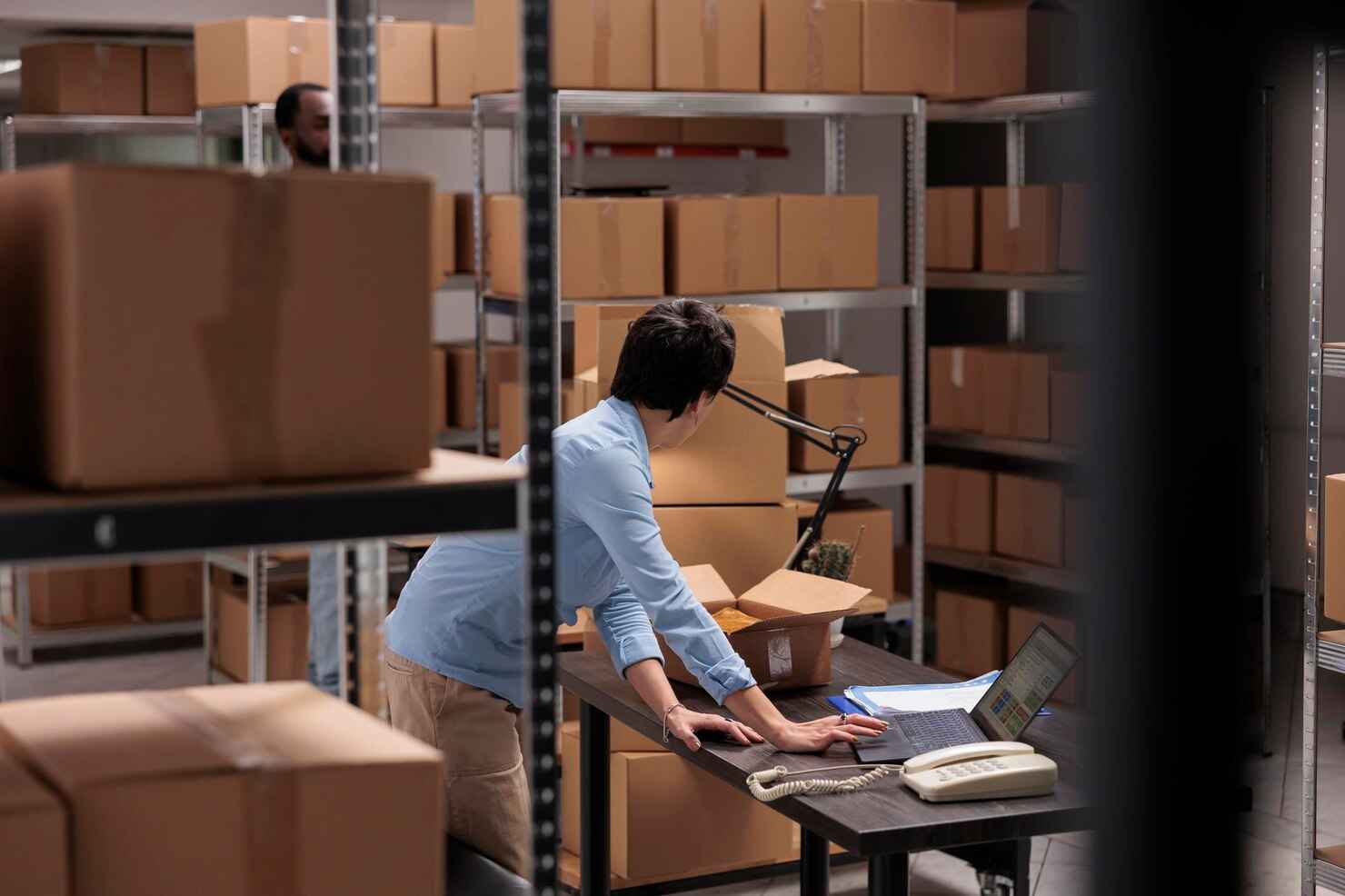 SHARE
SHARE
Can ERP Systems Solve Your Business Inventory Problems?

Inventory management can be a very challenging task for any business, especially for businesses with many products and variations. If not handled properly, inventory problems can lead to overstocking, stock shortages, product loss, and unnecessary costs.
Fortunately, there is now a solution that can help manage business inventory, namely Enterprise Resource Planning (ERP) systems.
ERP systems are integrated and comprehensive software systems designed to help companies manage core business processes more efficiently and effectively. ERP integrates all parts of the organization and departments, including production, finance, human resources, supply chain management, and sales, into one centralized system.
Benefits of ERP Systems for Your Business Inventory

Source: freepik.com
This system has become an essential need in today's business world and is very useful in optimizing business processes, increasing efficiency, and helping businesses grow.
To learn more, here are the benefits of ERP systems that can help solve inventory problems in your business:
1. Improving Accuracy
In business, inventory accuracy is crucial. However, with ERP systems, businesses can reduce manual errors in inventory management and improve data accuracy.
2. Increasing Efficiency
ERP systems can accelerate inventory management processes, including purchasing, shipping, and receiving goods. ERP automates business processes, allowing businesses to save time and costs in inventory management. ERP can also help businesses in planning and monitoring inventory needs, thus avoiding unnecessary stock shortages or overstocking.
3. Increasing Visibility
Inventory visibility is crucial in running a business. With ERP systems, business owners can see real-time inventory status and know the quantity of available goods, location of goods, and other inventory-related information. This information can help businesses optimize inventory and avoid unnecessary costs.
4. Increasing Speed
ERP can speed up product delivery, purchasing processes, reduce delivery errors, and improve monitoring of product deliveries. This can help businesses provide better service to customers and increase customer satisfaction.
5. Increasing Warehouse Space Efficiency
Warehouse space utilization can be optimized with ERP systems, avoiding unnecessary warehouse space shortages or overages. ERP can help businesses better plan storage locations for goods and optimize warehouse space usage.
The above benefits of ERP systems will certainly make business owners interested in starting to use them. However, selecting this system will be a significant step
to ensure business success.
Tips for Choosing an ERP System
 Source: Freepik.com
Source: Freepik.com
To make your business even more successful, you should pay attention to the following points:
1. Determine Business Needs
Before choosing an ERP system, you need to clearly understand the business needs. Find answers to 'what do you want to achieve by adopting an ERP system?', 'are there any business processes to be automated or optimized?', 'do you want to increase efficiency, speed up decision-making, or improve product or service quality?'
By finding these answers, you will better understand business needs and help you choose the right ERP system.
2. Reliability & Security
ERP systems must be reliable and secure. Ensure that the system has reliable data recovery features so that data can be quickly restored in the event of system failure or natural disasters. The system must also have strong security features to protect sensitive data.
3. Features & Capabilities
Each ERP system has different features and capabilities. Ensure that the system has features and capabilities that are suitable and best for business needs. Some features and capabilities to consider include inventory management, manufacturing, accounting, and human resources.
4. Costs & Capabilities
ERP system costs can vary depending on the features and capabilities it possesses. Make sure to estimate the total cost for procurement, implementation, and training. Also, ensure that the system can be customized to suit business needs and can be upgraded in the future.
5. Integration
Choose an ERP system that is already integrated with all systems. This will accommodate better business growth. Thus, it is more practical and efficient in managing business.
6. Reliable & Choose a Reliable ERP System Provider
Choose an ERP system provider with a good reputation and experience in implementing ERP systems for companies similar to your business. Also, make sure the system provider can provide good and responsive technical support.
Those are some tips for choosing the best ERP system. From the explanation above, it can be ensured that an ERP system can be a solution to business inventory problems. By doing so, you as a business owner should start using the system so that inventory problems do not linger and harm your business.
One ERP system that you can rely on is ESB Core, which is specialized ERP software for the F&B industry. This ESB system is capable of monitoring all business processes in real-time but more efficiently and practically.
Interestingly, you can have ESB Core without having to download or install any applications or software because of its web-based system. The features it
possesses are also very comprehensive, ranging from purchasing functions, inventory management, production, accounting, finance, to reporting functions (long-term and short-term).
By using the ESB Core ERP system, you only need one account to manage all transactions that occur in several outlets or brands you own, all within one dashboard. Additionally, you can monitor all transaction activities anywhere and anytime.
Now, to start using the ESB ERP system, you can directly contact ESB!
 SHARE
SHARE




